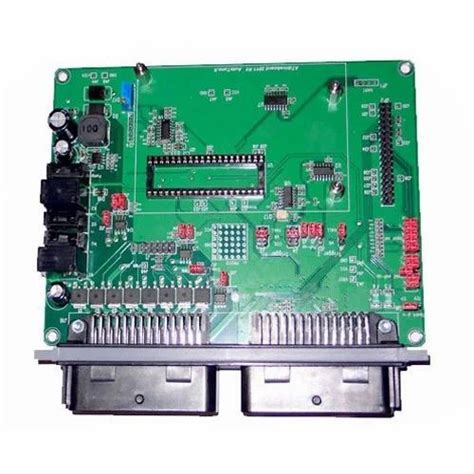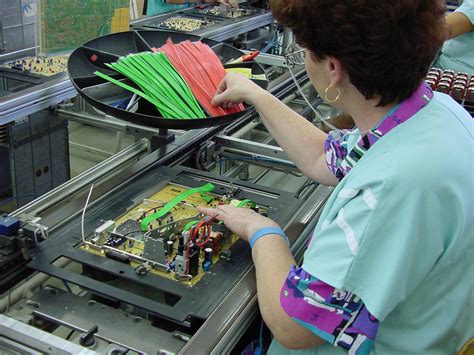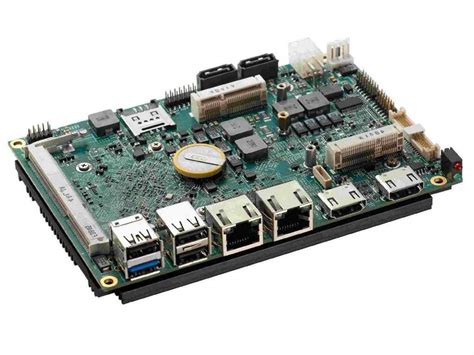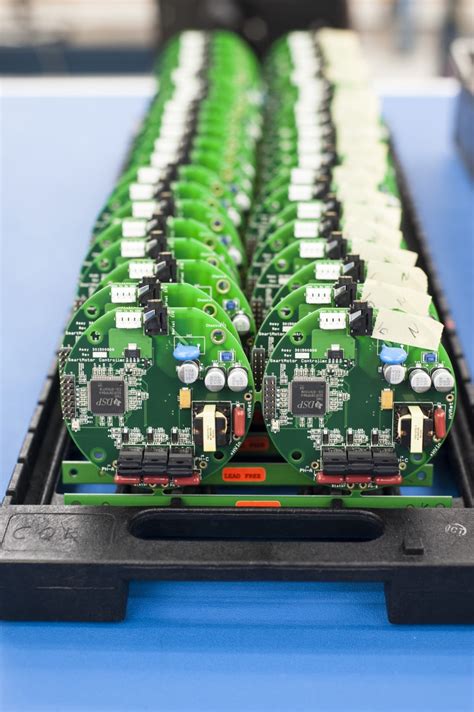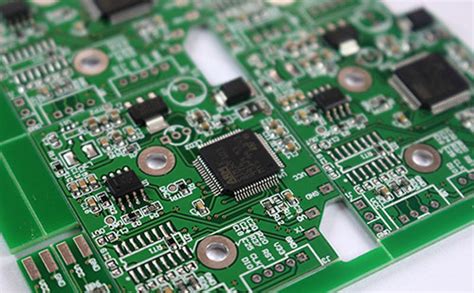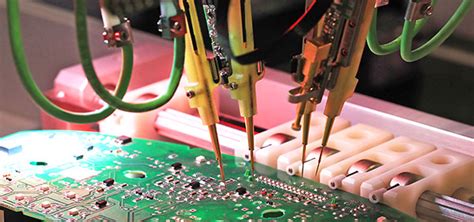Cost-Effective PCB Assembly Services for Scalable Production
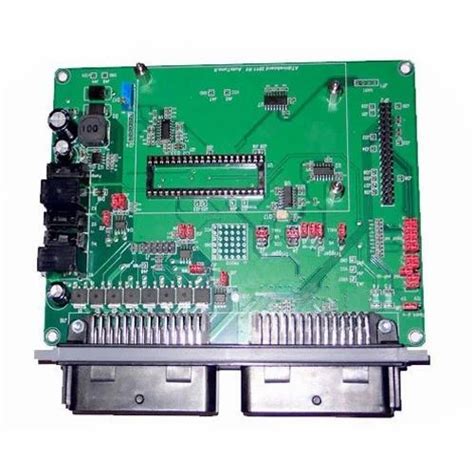
Key Takeaways
Implementing PCB assembly services strategically can significantly optimize production costs while maintaining quality standards. By leveraging economies of scale and advanced manufacturing techniques, businesses reduce per-unit expenses, especially in high-volume PCB assembly projects. Scalable PCBA solutions enable seamless transitions from prototyping to mass production, minimizing downtime and aligning with growth objectives.
| Factor | Traditional Approach | Scalable PCBA |
|---|---|---|
| Cost Structure | Fixed overheads | Volume-based discounts |
| Production Flexibility | Limited batch sizes | Adaptive workflows |
| Lead Time | Longer cycles | Streamlined processes |
Key advantages include automated component placement for precision, rapid turnaround capabilities, and access to expert technical support. Partnering with a PCB assembly provider ensures access to cutting-edge equipment and compliance with industry certifications, reducing risks of defects. Additionally, just-in-time manufacturing models help minimize inventory costs while meeting fluctuating demand. For businesses prioritizing scalability, integrating PCBA services into their supply chain fosters long-term competitiveness without compromising reliability.
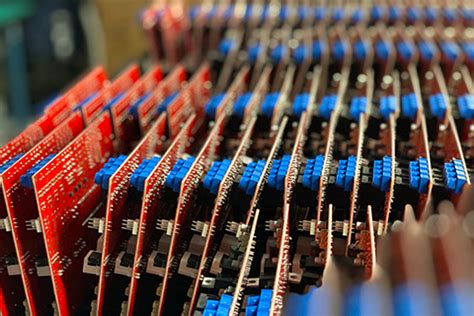
How PCB Assembly Reduces Costs
Modern PCB assembly processes leverage economies of scale and advanced manufacturing techniques to significantly lower production expenses. By consolidating component procurement and streamlining workflows, PCBA providers reduce material waste and labor costs, particularly in high-volume orders. Automated assembly lines minimize human error, ensuring consistent quality while cutting rework expenses. Additionally, optimized panelization designs maximize substrate utilization, further reducing per-unit costs.
Tip: Partnering with a PCB assembly service that offers bulk purchasing agreements for components can lead to substantial savings, especially for recurring production runs.
The integration of surface-mount technology (SMT) in PCBA allows for faster production cycles and higher component density, directly translating to lower overhead. Scalable solutions, such as flexible batch sizing and modular tooling, enable businesses to align manufacturing costs with demand fluctuations. Pre-negotiated supplier contracts and just-in-time inventory practices further eliminate storage-related expenses.
"Designing for manufacturability (DFM) early in the prototyping phase reduces costly revisions during mass production," notes an industry expert.
By standardizing assembly protocols and adopting lean manufacturing principles, PCB assembly services eliminate redundancies while maintaining rigorous quality benchmarks. This balance of efficiency and precision ensures cost-effective outcomes without compromising reliability, making PCBA a strategic choice for budget-conscious electronics manufacturers.
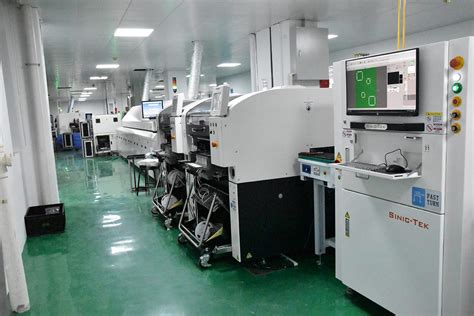
Scalable PCB Solutions for Growth
In today’s competitive electronics landscape, scalable PCB assembly solutions are critical for businesses aiming to grow without sacrificing operational efficiency. Scalability in PCBA ensures manufacturers can adapt to fluctuating demand, whether ramping up for high-volume orders or adjusting to smaller batches during prototyping phases. By leveraging automated assembly lines and flexible sourcing strategies, providers deliver consistent quality while minimizing per-unit costs—a key advantage for startups and enterprises alike.
Advanced PCB assembly platforms integrate real-time production monitoring and modular workflows, allowing seamless transitions between project scales. This agility not only accelerates time-to-market but also reduces risks associated with inventory overstock or component shortages. For businesses targeting international markets, scalable PCBA services often include multi-region compliance support, ensuring products meet diverse regulatory standards without redesign delays.
Moreover, scalability extends beyond volume adjustments. Partnering with a PCB assembly provider that offers design-for-manufacturability (DFM) feedback enables iterative improvements, aligning product iterations with production capabilities. Such collaboration ensures that growth-oriented companies maintain cost control while innovating, creating a sustainable path for scaling operations in alignment with market opportunities.
High-Volume PCB Assembly Benefits
For businesses requiring large-scale electronics manufacturing, leveraging high-volume PCB assembly services unlocks significant advantages. Economies of scale play a pivotal role here, as bulk production reduces per-unit costs for components, labor, and materials. This efficiency is further amplified by streamlined PCBA workflows, where automated pick-and-place systems and reflow soldering technologies ensure consistent quality across thousands of units.
Transitioning to high-volume PCB assembly also minimizes downtime between prototyping and full-scale production. Manufacturers with expertise in PCBA optimize material procurement and inventory management, preventing bottlenecks that could delay timelines. Additionally, advanced testing protocols—such as automated optical inspection (AOI) and functional testing—are seamlessly integrated into high-volume workflows, ensuring reliability without compromising speed.
Another critical benefit lies in supplier relationships. Established PCB assembly partners often negotiate better pricing for raw materials due to recurring bulk orders, passing these savings to clients. This collaborative approach extends to scalability planning, where manufacturers proactively adjust production schedules to align with fluctuating demand. By aligning with a PCBA provider specializing in high-volume projects, businesses achieve not only cost efficiency but also the agility needed to adapt to market shifts while maintaining rigorous quality standards.
Expert PCB Assembly Support Guide
Leveraging PCB assembly expertise ensures seamless integration of design, component selection, and manufacturing processes. Specialized PCBA partners provide targeted engineering guidance, from design-for-manufacturability (DFM) analysis to prototype validation, reducing costly revisions and delays. By aligning with certified professionals, businesses gain access to advanced tools like automated optical inspection (AOI) and thermal profiling, which optimize yield rates and long-term reliability.
A critical advantage of expert PCB assembly support lies in supply chain coordination. Seasoned providers mitigate risks like component shortages or obsolescence through alternate sourcing strategies and inventory management systems. For high-mix, high-volume projects, this ensures consistent material availability while adhering to cost benchmarks. Additionally, technical teams assist in refining test protocols—such as in-circuit testing (ICT) or functional validation—to identify defects early and maintain compliance with industry standards.
Scalability demands further underscore the value of PCBA partnerships. Experts tailor workflows for flexible scaling, whether transitioning from prototype to mass production or adapting to evolving product specifications. Real-time collaboration via digital platforms enables rapid feedback loops, ensuring alignment between design iterations and manufacturing capabilities. This proactive approach minimizes downtime and positions businesses to capitalize on emerging opportunities in sectors like IoT or industrial automation.
Affordable PCB Production Strategies
Implementing cost-efficient strategies in PCB assembly requires balancing technical precision with economic considerations. One proven approach involves optimizing design for manufacturability (DFM), which minimizes material waste and reduces rework during PCBA processes. By standardizing component footprints and leveraging panelization techniques, manufacturers can achieve higher yields while lowering per-unit costs.
Another critical factor is selecting suppliers offering tiered pricing models aligned with production volumes. High-volume PCB assembly often unlocks economies of scale, particularly when combined with automated pick-and-place systems that accelerate throughput. For startups or mid-scale projects, hybrid manufacturing approaches—combining prototype-grade flexibility with batch-production efficiencies—help avoid overcommitment to untested designs.
Strategic material sourcing further enhances affordability. Partnering with PCBA providers that maintain vetted component inventories prevents last-minute premium pricing for rare parts. Additionally, adopting modular designs with interchangeable subassemblies allows reuse across product lines, amortizing development costs.
Transitioning to these methods not only reduces upfront expenses but also establishes a foundation for seamless scaling. As demand grows, pre-negotiated supplier agreements and process-optimized workflows ensure consistent cost control without compromising on ISO-certified quality standards.
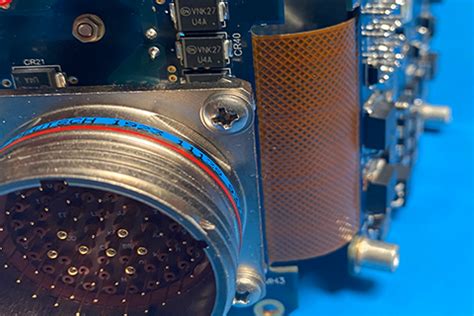
Rapid Turnaround PCB Services
Modern electronics manufacturing demands PCB assembly workflows that align with aggressive project timelines without compromising quality. Rapid turnaround PCBA solutions address this need by leveraging advanced automation, streamlined logistics, and strategic inventory management. Manufacturers employing just-in-time component sourcing and parallel processing techniques can reduce lead times by 30–50% compared to traditional methods, particularly for orders exceeding 1,000 units.
Critical to achieving speed is the integration of DFM (Design for Manufacturability) analysis early in the development cycle, which identifies potential production bottlenecks before PCB assembly begins. Automated optical inspection (AOI) systems and inline testing protocols further accelerate quality assurance phases, ensuring first-pass yield rates above 98% even under compressed schedules.
For scaling operations, partnering with PCBA providers offering flexible capacity allocation ensures consistent throughput during demand spikes. This approach maintains cost efficiency while meeting tight deadlines—a vital balance for industries like IoT devices and automotive electronics, where time-to-market directly impacts competitive advantage. Transitioning to such optimized workflows allows businesses to convert accelerated production timelines into tangible market leadership.
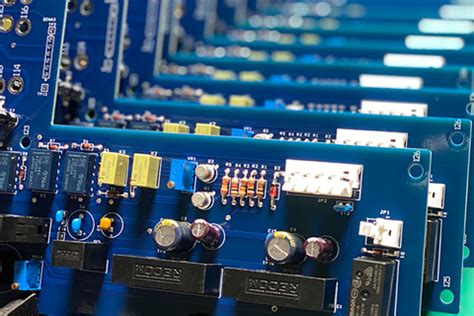
Optimize Electronics Manufacturing Costs
Effective cost management in electronics manufacturing hinges on leveraging PCB assembly processes that balance efficiency with quality. By integrating design-for-manufacturability (DFM) principles, PCBA providers can identify potential production bottlenecks early, reducing material waste and rework costs. Scalable solutions, such as panelized assembly or automated pick-and-place systems, enable manufacturers to achieve economies of scale while maintaining precision.
Strategic partnerships with PCB assembly services that offer bulk pricing for components and streamlined logistics further lower per-unit expenses. For instance, consolidating orders for high-volume production minimizes setup fees and optimizes material utilization. Additionally, advanced testing protocols, like automated optical inspection (AOI), ensure defects are caught early, preventing costly post-production fixes.
Transitioning to standardized components and modular designs also enhances cost predictability. By aligning with PCBA experts who provide real-time cost analytics, businesses can dynamically adjust production strategies to align with market demands. This approach not only reduces overhead but accelerates time-to-market—a critical factor in maintaining competitive advantage.
Ultimately, optimizing costs in electronics manufacturing requires a holistic view of PCB assembly workflows, where technical expertise and scalable infrastructure converge to deliver repeatable, budget-friendly outcomes.
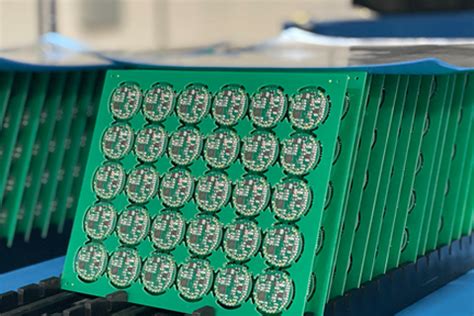
Ensuring Quality in PCB Assembly
Maintaining rigorous quality standards is non-negotiable in PCB assembly, where even minor defects can lead to costly rework or product failures. Reputable PCBA providers employ multilayer inspection protocols, combining automated optical inspection (AOI), X-ray analysis, and functional testing to identify issues at every production stage. By adhering to IPC-A-610 and IPC-J-STD-001 benchmarks, assemblers ensure solder joint integrity, component alignment, and electrical performance meet industry requirements.
Design-for-manufacturability (DFM) reviews further prevent quality risks by optimizing layouts for efficient assembly, minimizing errors before production begins. For high-volume orders, statistical process control (SPC) tools track real-time data to maintain consistency across batches. Additionally, partnerships with certified component suppliers reduce the risk of counterfeit parts, while traceability systems log material origins for compliance audits.
To balance cost and reliability, leading PCB assembly services integrate quality assurance into scalable workflows, leveraging advanced equipment like pick-and-place machines with micron-level precision. Regular calibration of reflow ovens and selective soldering systems ensures thermal profiles align with material specifications. Finally, third-party certifications such as ISO 9001 and IATF 16949 validate a provider’s commitment to continuous improvement, making quality a measurable outcome rather than an afterthought.
Conclusion
Selecting the right PCB assembly partner is a strategic decision that directly impacts production scalability and long-term cost management. By aligning with providers that offer PCBA solutions tailored for high-volume manufacturing, businesses can achieve cost-efficiency without compromising on precision or reliability. Advanced PCB assembly services integrate automated workflows, rigorous quality controls, and flexible material sourcing—key factors that minimize waste and accelerate time-to-market for complex electronics.
For enterprises prioritizing growth, scalable PCBA frameworks ensure seamless transitions from prototyping to mass production, adapting to fluctuating demand while maintaining consistent output standards. Partnering with experts who provide end-to-end technical support further mitigates risks, enabling manufacturers to focus on innovation rather than operational bottlenecks.
Ultimately, the synergy between cost-effective practices and robust PCB assembly capabilities forms the foundation for sustainable scalability. By leveraging these optimized processes, businesses can meet evolving market demands while safeguarding margins, ensuring both product quality and profitability remain uncompromised.
Frequently Asked Questions
What factors influence the cost of pcb assembly services?
The total cost depends on component complexity, board size, material selection, and order volume. PCBA providers often offer volume discounts for scalable production runs, enabling businesses to reduce per-unit expenses while maintaining quality standards.
How does scalable pcb assembly support business growth?
Scalable PCB assembly solutions allow manufacturers to adjust production capacity dynamically. This flexibility ensures consistent quality across low-, mid-, and high-volume orders, aligning with market demand fluctuations without compromising turnaround times.
What quality checks are performed during pcb assembly?
Reputable PCBA partners implement automated optical inspection (AOI), X-ray testing, and functional validation to detect defects. Rigorous protocols like IPC-A-610 certification ensure compliance with industry benchmarks for reliability and performance.
Can rapid turnaround times affect pcb assembly quality?
Experienced providers balance speed and precision by optimizing workflows and leveraging advanced equipment. Expedited services often include parallel processing stages, such as concurrent component sourcing and prototype testing, to meet deadlines without sacrificing accuracy.
How do I choose a pcb assembly partner for high-volume needs?
Prioritize providers with proven expertise in high-volume PCBA, robust supply chain networks, and transparent communication. Confirm their ability to scale production seamlessly while offering technical support for design optimization and component sourcing.
Ready to Streamline Your Production?
For tailored PCB assembly solutions that align with your scalability and cost goals, please click here to explore Andwin PCB’s expert services.

